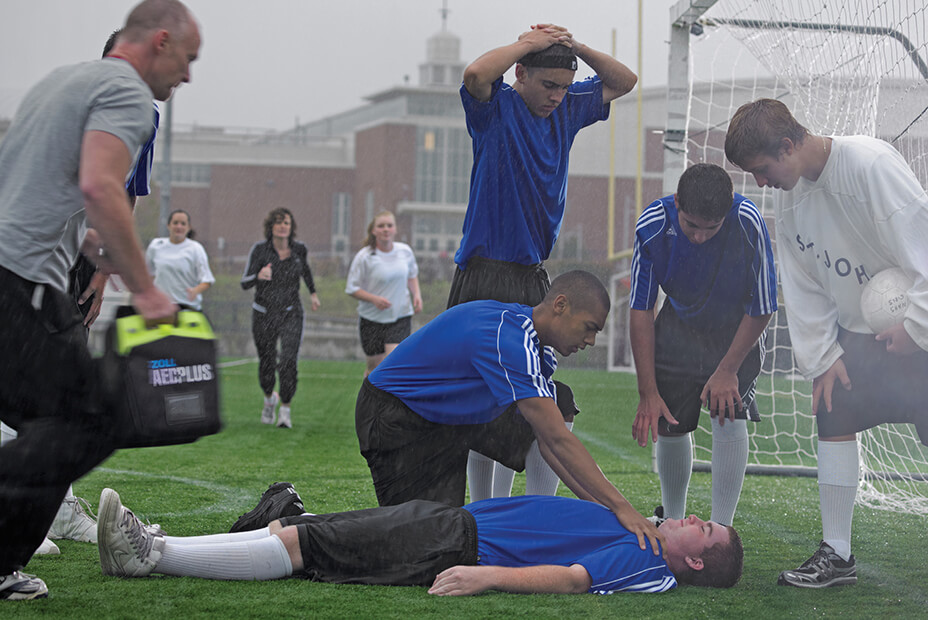Did you know that sudden cardiac arrest occurs three times more frequently in athletes than non-athletes? Why? Because physical activity can act as a triggering risk factor, regardless of your fitness level, weight, or age.
This has been shown in the recent high profile cases of cardiac arrest taking place on the football field in 29 year old Christian Eriksen at the 2020 European Championships and 24 year old Buffalo Bill’s player Dama Hamlin. Both young, extremely fit and you would think are the least likely to suffer from a potentially fatal heart event.
Although these are rare incidents, you don’t want it happening to you, your team, your club, or your spectators. So it is always best to be prepared for the worst both on and off the field. Every minute counts when dealing with a cardiac arrest.
Cardiologist and researcher for the Baker Heart and Diabetes Institute, Dr Liz Paratz told the ABC that cardiac arrest is one of the biggest killers of people under 50 in Australia, “and in about 30 to 40 per cent of cases, doctors cannot explain what caused it.”.
A cardiac arrest is different to a heart attack. A cardiac arrest happens when the heart stops beating. Heart attacks are an interruption of blood flow to the heart that can lead to heart muscle damage, which can lead to a cardiac arrest. The best way to treat a person who has had a cardiac arrest is to perform CPR and administer defibrillation (AED) as soon as possible. Every minute counts.
“If a cardiac arrest happens outside of hospital, their chances of survival are less than 1 in 10. Using a combination of CPR and AED will greatly increase a person's chance of survival from 6 percent to 74 percent if administered within three to five minutes of someone collapsing.” (Health Direct)
An AED is a portable automated external defibrillator that is easy to use for the non-trained and the trained. An AED provides an electric shock to a person via two pads placed in specific locations on the chest. The shock is an attempt to ‘restart’ normal electrical activity with the heart. CPR (cardiopulmonary resuscitation) is a manual way to help the heart pump blood and oxygen around the body, limiting vital organ and brain damage.
The portable AEDs we sell at Alpha Sport all offer voice prompts and pictures so even children as young as eight can work through the process to defibrillate a person. No training needed. However, training can provide you with greater confidence to provide CPR and defibrillation.
Are you a club or health professional? We offer wholesale pricing. Sign in or register for an online account today!

It is important to have your portable AED signed and in a highly visual location so in an emergency it can be easily recognised. We offer ‘save a life’ bundles which are cost effective and include an AED, signage, wall mounts and shaver kits, as defibrillation is best administered to hairless skin.
NSW is ahead of the game and now offers a Local Sport Defibrillator Grant Program to get their sporting clubs equipped with the tools they need to save lives.
Alpha Sport can provide you with First Aid/CPR training plus the AED to allow you to be ready for any life threatening emergency while waiting for medical professionals to arrive.
To learn more about cardiac arrests and defibrillators click here. To see our full range of AEDs and bundles take a look here.